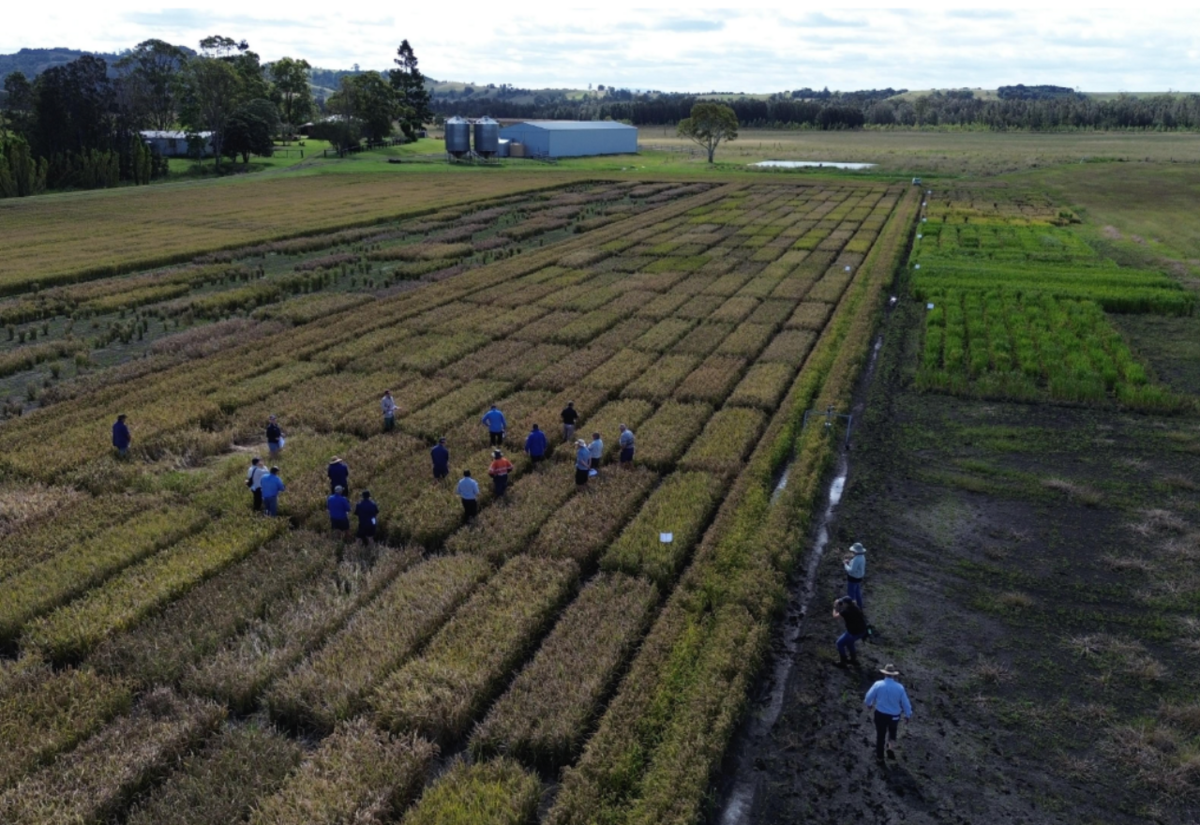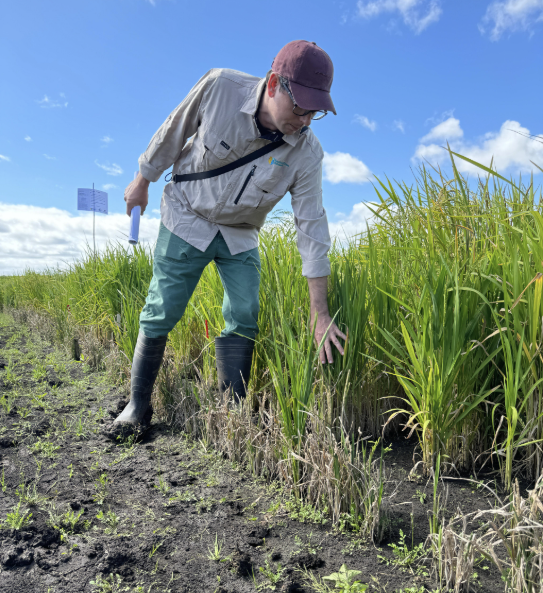Lismore & NRs leading the way when it comes to growing sustainable black rice
06 May 2025, 9:00 PM
 A drone image of the different types of rice grown in South Gundurimbah. Photo: SCU
A drone image of the different types of rice grown in South Gundurimbah. Photo: SCULismore and the Northern Rivers are leading the country in developing a sustainable rice industry outside traditional growing areas.
Recently, local farmers and rice growers gathered at South Gundurimba to tour a research farm that could hold the key.
More than 500 varieties have been put to the test over the last few years in the Southern Cross University project, funded by the Australian Research Council, to develop a drought and disease-resistant, ‘climate-smart’ variety suitable for local conditions.
Lead researcher Dr Szabolcs Lehoczki-Krsjak said he was optimistic about the results.
“A sustainable rice industry needs to be climate-smart. Which means we need to look at genetics that ensure drought tolerance, cold resistance and Blast [fungus] resistance. We have narrowed it down to a handful of candidates so far, and I am confident the eventual winner will do well in the Northern Rivers and beyond.”

(Dr Szabolcs Lehoczki-Krsjak discusses the research project with local farmers. Photo: SCU)
Less than five per cent of Australia’s overall rice production – but close to 100 per cent of sustainably grown rice – comes from the Northern Rivers, which has a small but increasing number of rice growers. Most Australian rice is grown in the Riverina region in southern New South Wales.
But rice is a thirsty crop, and the Riverina industry is dependent on flood irrigation, whereas Northern Rivers farmers, thanks to the area’s high rainfall, grow without flood irrigation, in a practice known as dryland or aerobic rice farming.
With fresh water becoming a precious resource worldwide and ponded rice fields having a significant share in agricultural greenhouse gas emissions, this sustainable, water-saving, low-emission growing method is the future of the rice industry.
Southern Cross University and industry partner Natural Rice Co. are at the forefront of developing new varieties to facilitate the growth and higher share of eco-friendly rice in Australia.
The front runner in the trial is highly nutritious Black Rice varieties, which are rich in naturally occurring compounds called ‘anthocyanins’, known to be beneficial agents in reducing inflammation and with major antioxidant properties.
A recent incursion of Rice Blast has offered additional opportunities to test the disease resistance of Black Rice.
Rice Blast is a fungal disease caused by Magnaporthe oryzae (synonym Pyricularia oryzae) and is considered the most significant rice disease worldwide. It has been detected throughout the Northern Rivers this season again, and together with the unusually dry January and February, has caused significant yield losses for farmers, in some cases up to 90 per cent.
The Riverina region is Blast-free thanks to stringent biosecurity and less favourable conditions for the fungus, although the research underway in northern NSW could ultimately benefit that area as well.
Professor of plant genetics and breeding at Southern Cross University, Tobias Kretzschmar, said the move towards healthier and more sustainable staple crops was a global concern.
“Black Rice is gaining popularity among health-conscious consumers and is prized for its nutty flavour and chewy texture, but all Black Rice in Australian supermarkets is imported. We think we can change that in a win-win for consumers, for growers and for the environment.”
Steve Rogers, General Manager of the Natural Rice Co., said it was pleasing to see the trial progress.
“I’m very happy to see the results so far. Although we are still a few years from a commercial option of Black Rice for growers, the breeding work and testing we have been able to do with the University is setting us up for a resilient and more environmentally friendly industry in the future.”
As part of an AgriFutures Australia project on improving weed control options for dryland rice, growers and advisors at the field day were also able to walk through weed control trials where current and new herbicide combinations are being tested in an effort to reduce weeds and increase yield, and thus water use efficiency.

